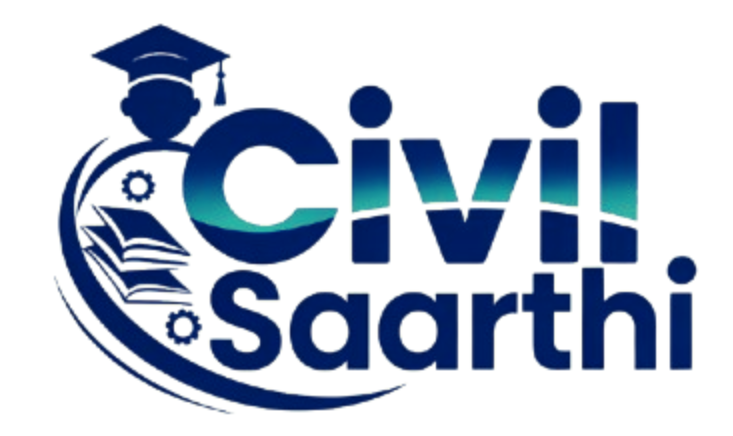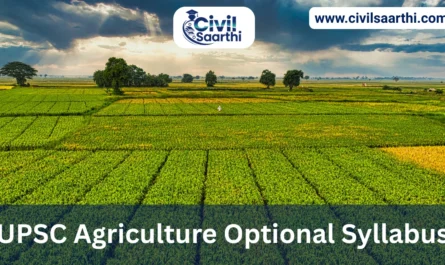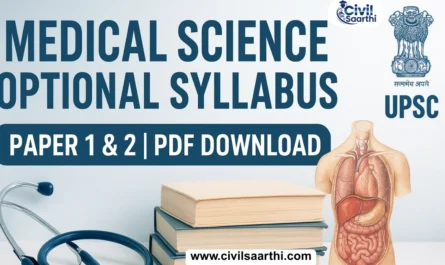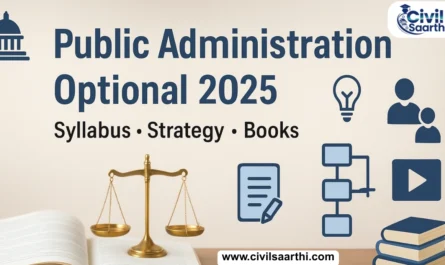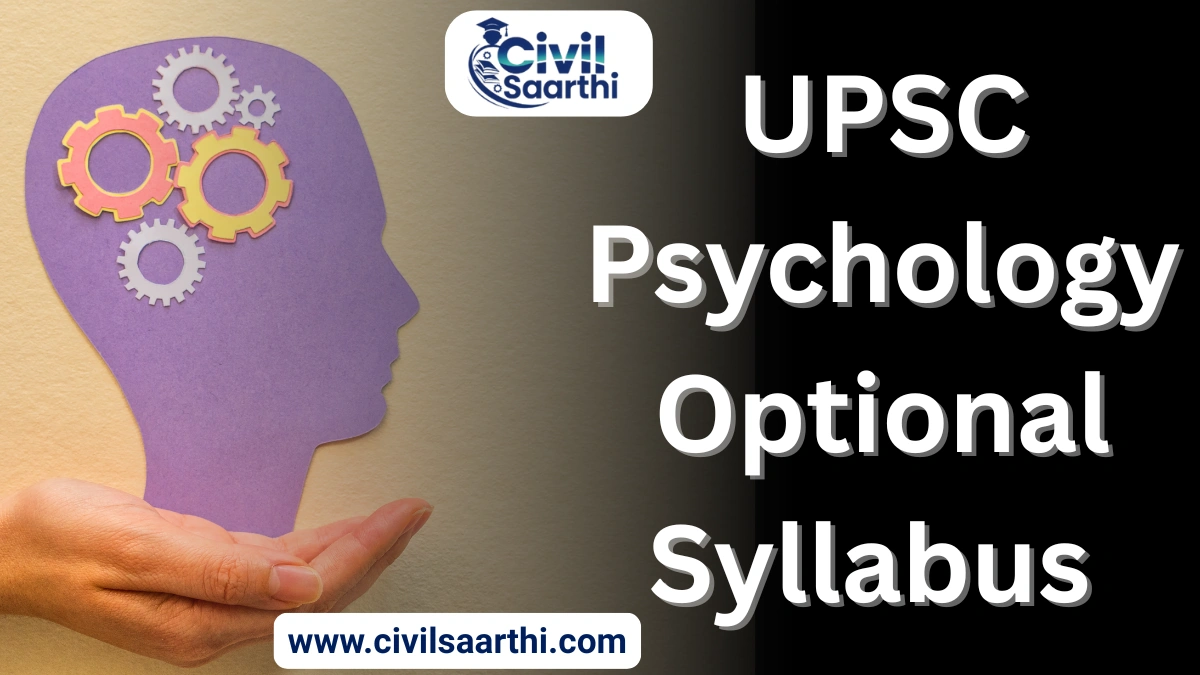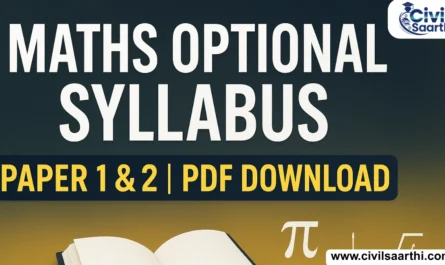The UPSC Mains Syllabus 2025 is the cornerstone for aspirants preparing for the prestigious Civil Services Examination. The Mains stage is descriptive and demands in-depth knowledge, analytical ability, and a clear understanding of the topics. It consists of nine papers, out of which two are qualifying in nature, while the remaining seven are counted for ranking. Understanding the syllabus helps aspirants plan their preparation strategy effectively.
UPSC Mains Syllabus 2025
The UPSC Mains Syllabus 2025 tests a candidate’s depth of understanding, ability to analyse topics critically, and skill in structured answer writing. This exam stage is descriptive and evaluates candidates through nine papers, of which two are qualifying. The remaining seven papers contribute to the merit list.
UPSC Mains Syllabus 2025 Overview
A structured view of the UPSC Mains Syllabus 2025 helps aspirants plan preparation in a systematic way. Here is an overview table summarising all the papers, marks, and purpose.
| Structure of UPSC Mains Syllabus 2025 | ||||
| Paper | Subject | Marks | Nature | Purpose |
| A | Indian Language | 300 | Qualifying | Language Proficiency |
| B | English | 300 | Qualifying | Language Proficiency |
| I | Essay | 250 | Merit | Analytical Writing |
| II | General Studies I | 250 | Merit | History & Society |
| III | General Studies II | 250 | Merit | Polity & IR |
| IV | General Studies III | 250 | Merit | Economy & Tech |
| V | General Studies IV | 250 | Merit | Ethics & Governance |
| VI | Optional Paper I | 250 | Merit | Subject Expertise |
| VII | Optional Paper II | 250 | Merit | Subject Expertise |
| Total Written | 1750 Marks | |||
| Interview | 275 Marks | |||
| Grand Total | 2025 Marks | |||
Download UPSC Mains Syllabus 2025 PDF
Candidates can download the UPSC Syllabus 2025 for Mains by clicking on the link provided below. The syllabus is designed as per the latest official UPSC Notification 2025 provided by the official authority. The syllabus is one of the most crucial part of the preparation as it guides the candidates to understand the syllabus thoroughly.
Click here to Download UPSC Mains Syllabus 2025 PDF
UPSC Mains Syllabus 2025: Qualifying Papers (Paper A & Paper B)
The UPSC Mains Syllabus 2025 includes two qualifying language papers: one in Paper A (Indian language) and another in Paper B (English). These papers are essential but are not counted toward the merit list. Candidates must score at least 25% to pass.
Paper A – Indian Language
Paper A in the UPSC Mains Syllabus 2025 tests a candidate’s proficiency in an Indian language listed in the Eighth Schedule of the Constitution. Though it’s a qualifying paper, scoring at least 75 out of 300 is mandatory.
| Paper A (Indian Language) | |
| Section | Topics Included |
| Comprehension | Understanding passages in the chosen Indian language |
| Precis Writing | Summarizing a given passage accurately |
| Essay Writing | Writing on a general or social issue |
| Grammar & Vocabulary | Testing usage, correctness, and richness of language |
| Translation | English to Indian language and vice versa |
Paper B – English
Paper B in the UPSC Mains Syllabus 2025 is the English qualifying paper, and just like Paper A, it is not counted for the final ranking. However, candidates must score a minimum of 75 out of 300 to qualify.
| Paper B (English) | |
| Section | Topics Included |
| Comprehension | Understanding and answering questions from passages |
| Precis Writing | Condensing long passages into shorter summaries |
| Essay Writing | Expressing views on various topics in clear English |
| Grammar & Vocabulary | Correct usage, tenses, conjunctions, prepositions, etc. |
| Sentence Structuring | Rearranging and forming meaningful sentences |
UPSC Mains Syllabus 2025: Essay (Paper I)
The Essay paper under the UPSC Mains Syllabus 2025 checks the ability to form arguments, organize ideas, and express them coherently. This is one of the high-scoring papers if approached well. A candidate is required to write two essays, usually one from each section. Topics could be philosophical, current affairs-based, or social issues.
| Essay Paper Details | |
| Aspect Evaluated | Explanation |
| Coherence | Logical flow between paragraphs |
| Originality | Unique ideas and perspectives |
| Structure | Clear introduction, body, and conclusion |
| Language Clarity | Use of correct and expressive English |
| Topic Understanding | Relevance and depth of content |
UPSC Mains Syllabus 2025 : GS I PAPER-II
General Studies-I: Indian Heritage and Culture, History and Geography of the World and Society.
- Indian culture will cover the salient aspects of Art Forms, literature and Architecture from ancient to modern times.
- Modern Indian history from about the middle of the eighteenth century until the present- significant events, personalities, issues.
- The Freedom Struggle — its various stages and important contributors/contributions from different parts of the country.
- Post-independence consolidation and reorganization within the country.
- History of the world will include events from 18th century such as industrial revolution, world wars, redrawal of national boundaries, colonization, decolonization, political philosophies like communism, capitalism, socialism etc.— their forms and effect on the society.
- Salient features of Indian Society, Diversity of India.
- Role of women and women’s organization, population and associated issues, poverty and developmental issues, urbanization, their problems and their remedies.
- Effects of globalization on Indian society.
- Social empowerment, communalism, regionalism & secularism.
- Salient features of world’s physical geography.
- Distribution of key natural resources across the world (including South Asia and the Indian subcontinent); factors responsible for the location of primary, secondary, and tertiary sector industries in various parts of the world (including India).
- Important Geophysical phenomena such as earthquakes, Tsunami, Volcanic activity, cyclone etc., geographical features and their location-changes in critical geographical features (including water-bodies and ice-caps) and in flora and fauna and the effects of such changes.
UPSC Mains Syllabus 2025 : GS II PAPER-III
General Studies- II: Governance, Constitution, Polity, Social Justice and International relations.
- Indian Constitution—historical underpinnings, evolution, features, amendments, significant provisions and basic structure.
- Functions and responsibilities of the Union and the States, issues and challenges pertaining to the federal structure, devolution of powers and finances up to local levels and challenges therein.
- Separation of powers between various organs dispute redressal mechanisms and institutions.
- Comparison of the Indian constitutional scheme with that of other countries.
- Parliament and State legislatures—structure, functioning, conduct of business, powers & privileges and issues arising out of these.
- Structure, organization and functioning of the Executive and the Judiciary—Ministries and Departments of the Government; pressure groups and formal/informal associations and their role in the Polity.
- Salient features of the Representation of People’s Act.
- Appointment to various Constitutional posts, powers, functions and responsibilities of various Constitutional Bodies.
- Statutory, regulatory and various quasi-judicial bodies.
- Government policies and interventions for development in various sectors and issues arising out of their design and implementation.
- Development processes and the development industry —the role of NGOs, SHGs, various groups and associations, donors, charities, institutional and other stakeholders.
- Welfare schemes for vulnerable sections of the population by the Centre and States and the performance of these schemes; mechanisms, laws, institutions and Bodies constituted for the protection and betterment of these vulnerable sections.
- Issues relating to development and management of Social Sector/Services relating to Health, Education, Human Resources.
- Issues relating to poverty and hunger.
- Important aspects of governance, transparency and accountability, e-governance- applications, models, successes, limitations, and potential; citizens charters, transparency & accountability and institutional and other measures.
- Role of civil services in a democracy.
- India and its neighborhood- relations.
- Bilateral, regional and global groupings and agreements involving India and/or affecting India’s interests.
- Effect of policies and politics of developed and developing countries on India’s interests, Indian diaspora. Important International institutions, agencies and fora- their structure, mandate.
UPSC Mains Syllabus 2025 : GS III PAPER-IV
General Studies-III: Technology, Economic Development, Bio diversity, Environment, Security and Disaster Management
- Indian Economy and issues relating to planning, mobilization, of resources, growth, development and employment.
- Inclusive growth and issues arising from it. Government Budgeting.
- Major crops-cropping patterns in various parts of the country, – different types of irrigation and irrigation systems storage, transport and marketing of agricultural produce and issues and related constraints; e-technology in the aid of farmers.
- Issues related to direct and indirect farm subsidies and minimum support prices; Public Distribution System- objectives, functioning, limitations, revamping; issues of buffer stocks and food security; Technology missions; economics of animal-rearing.
- Food processing and related industries in India- scope and significance, location, upstream and downstream requirements, supply chain management.
- Land reforms in India.
- Effects of liberalization on the economy, changes in industrial policy and their effects on industrial growth.
- Infrastructure: Energy, Ports, Roads, Airports, Railways etc.
- Investment models.
- Science and Technology- developments and their applications and effects in everyday life.
- Achievements of Indians in science & technology; indigenization of technology and developing new technology.
- Awareness in the fields of IT, Space, Computers, robotics, nano-technology, bio-technology and issues relating to intellectual property rights.
- Conservation, environmental pollution and degradation, environmental impact assessment.
- Disaster and disaster management.
- Linkages between development and spread of extremism.
- Role of external state and non-state actors in creating challenges to internal security.
- Challenges to internal security through communication networks, role of media and social networking sites in internal security challenges, basics of cyber security; money-laundering and its prevention.
- Security challenges and their management in border areas – linkages of organized crime with terrorism.
- Various Security forces and agencies and their mandate.
UPSC Mains Syllabus 2025 : GS IV PAPER- V
General Studies- IV: Ethics, Integrity and Aptitude
- This paper will include questions to test the candidates’ attitude and approach to issues relating to integrity, probity in public life and his problem solving approach to various issues and conflicts faced by him in dealing with society. Questions may utilise the case study approach to determine these aspects. The following broad areas will be covered:
- Ethics and Human Interface: Essence, determinants and consequences of Ethics in-human actions; dimensions of ethics; ethics – in private and public relationships. Human Values – lessons from the lives and teachings of great leaders, reformers and administrators; role of family society and educational institutions in inculcating values.
- Attitude: content, structure, function; its influence and relation with thought and behaviour; moral and political attitudes; social influence and persuasion.
- Aptitude and foundational values for Civil Service, integrity, impartiality and non-partisanship, objectivity, dedication to public service, empathy, tolerance and compassion towards the weaker-sections.
- Emotional intelligence-concepts, and their utilities and application in administration and governance.
- Contributions of moral thinkers and philosophers from India and world.
- Public/Civil service values and Ethics in Public administration: Status and problems; ethical concerns and dilemmas in government and private institutions; laws, rules, regulations and conscience as sources of ethical guidance; accountability and ethical governance; strengthening of ethical and moral values in governance; ethical issues in international relations and funding; corporate governance.
- Probity in Governance: Concept of public service; Philosophical basis of governance and probity; Information sharing and transparency in government,
- Right to Information, Codes of Ethics, Codes of Conduct, Citizen’s Charters, Work culture, Quality of service delivery, Utilization of public funds, challenges of corruption.
- Case Studies on above issues.
UPSC Mains Syllabus 2025: Optional Subjects (Paper VI & VII)
In the UPSC Mains Syllabus 2025, optional subjects are a game-changer. These two papers allow aspirants to choose a subject in which they have strong command or prior academic experience. Each paper carries 250 marks. The choice of subject should be based on interest, guidance availability, and overlap with GS.
| Popular Optional Subjects UPSC Mains Syllabus 2025 | |
| Subject | Recommended For |
| Sociology | Easy to understand, overlaps with GS Paper 1 |
| Public Administration | Governance-focused, widely chosen |
| Geography | Scientific and map-based, overlaps with GS Paper 1 & 3 |
| Anthropology | Short syllabus, high scoring |
| Political Science | Useful for GS II, essay, and interview |
| Literature (Indian) | For those with strong command in literature |
FAQs on UPSC Mains Syllabus 2025
What is the total number of papers in the UPSC Mains Syllabus 2025?
The UPSC Mains consists of 9 papers: 2 Qualifying Papers: Paper A (Indian Language), Paper B (English) and 7 Merit-based Papers: Essay, GS I–IV, Optional Subject Paper I & II
Are Paper A and Paper B included in the final merit calculation?
No, Paper A (Indian Language) and Paper B (English) are qualifying papers only. You need to score at least 75 out of 300 in each to qualify, but they are not counted toward your final ranking.
Can I write the Mains exam in my regional language?
Yes. UPSC allows candidates to write their Mains papers in any language listed in the Eighth Schedule of the Indian Constitution.
What happens if I fail to qualify in Paper A or Paper B?
Even if you score well in the merit-based papers, failure to pass Paper A or Paper B results in disqualification, and your Mains papers won’t be evaluated for ranking.
Are calculators or electronic devices allowed in Mains?
No. Calculators, mobile phones, smartwatches, or any digital device are strictly prohibited in the UPSC exam halls for both Prelims and Mains.
Is there any difference in syllabus for different mediums (English/Hindi)?
No, the syllabus remains the same, regardless of whether you write in English, Hindi, or any other permitted language.
Can I change my optional subject after submitting the UPSC application?
No, once your UPSC application is submitted, you cannot change your optional subject.
